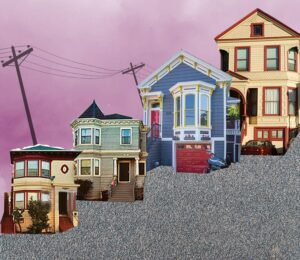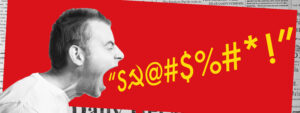“The center was not holding,” wrote Joan Didion in her famous article “Slouching Towards Bethlehem,” which chronicles the countercultural movement that swarmed the Haight-Ashbury in the 1960s. The summer of 1967 was a time of social tension and uncertainty, a time when it was easier to drop out and rebuild an identity of ideals rather than try to make nice with the increasingly finger-wagging, contradicting, violent reality growing on America’s streets and in the Vietnam War overseas.
Washington D.C., our nation’s capitol, is in many ways the center of the world, a holding pen for some of the most powerful and influential men and woman of our time. Yet, as I’ve walked around the city these last few weeks, Didion’s words keep coming back to me. The center is, in fact, not holding.
According to a March 25 article by Washington Post staff writer Tim Craig, “Nearly one out of five District residents lives at or below the poverty line, a statistic that helps expose a widening gap between the rich and the poor in the nation’s capital.” Craig further reports, “Last year the District experienced its biggest single-year increase in poverty since 1995.” The center is not holding.
The title of Didion’s article is borrowed from the last line of a Yeats poem entitled “The Second Coming,” in which Yeats writes, “The best lack all conviction, while the worst are full of passionate intensity.”
Walking around Capital Hill, you wouldn’t really know anything was wrong. The night of the health care vote, I watched two very tan congressmen standing outside a popular, high-end Italian restaurant with their blond, gleaming wives, standing tall, smiling bright and handing the staff and diners their business cards. Afterward, the host showed me the cards he’d been given, autographed by rock stars of the GOP.
“They said not to worry,” he said. “They’re not gonna let Obama get away with this tonight. It’s my generation that’s going to have to pay for all his stuff.”
When I asked if he had health insurance, the host paused and answered, “No, but I’m only 22.”
There are two realities here in D.C. The first is tourist-friendly, gleaming-white, statuesque monuments framed by blooming cherry blossoms and American flags. The second is that the number of children living in poverty is one in three, twice the national average. The unemployment rate reached 12 percent in February. The center is not holding.
Within the last few months, the District Metro Rail and buses were hit with fare increases due to a $40 million shortfall in this year’s budget and a projected $145 million deficit in the upcoming 2011 fiscal year beginning in July. According to board budget records, the Metro will also have to come up with $11.4 billion within the next 10 years to replace hundreds of older rail cars. Their goal is to address safety concerns raised after the numerous accidents and near-accidents that have plagued the transit service over the last couple of years.
According to an article by Washington Post staff writer Anne Scott Tyson published March 29, “Rail passengers, who face a 15 percent increase in fares, have a median income of $102,000; 75 percent are white, 18 percent are unemployed and one in 50 lives in a household without a car. Meanwhile, bus riders who faced the largest increases at 20 percent have a median annual income of $69,000; 50 percent are minorities, 23 percent are unemployed and one in five has no car in the household.”
The Washington Metro Transit Authority is the second largest rail transit system and the sixth largest bus network in the United States. It also has the highest fatality rate of any transit system in the country. The center is not holding.
We hear it over and over again from both sides of the aisle and across media platforms: Politicians on the hill are out of touch with America, but what can you expect when they’ve completely neglected the world just beyond their office windows? As the late Howard Zinn observed, “To say that people have the right to life, liberty, the pursuit of happiness, means that if, in fact, there is inequality in those things. Society has a responsibility to correct the situation and ensure that equality.”
But if D.C. is the heart and center of our great country, then as Yeats concluded, “The falcon cannot hear the falconer; things fall apart; the center cannot hold.”


